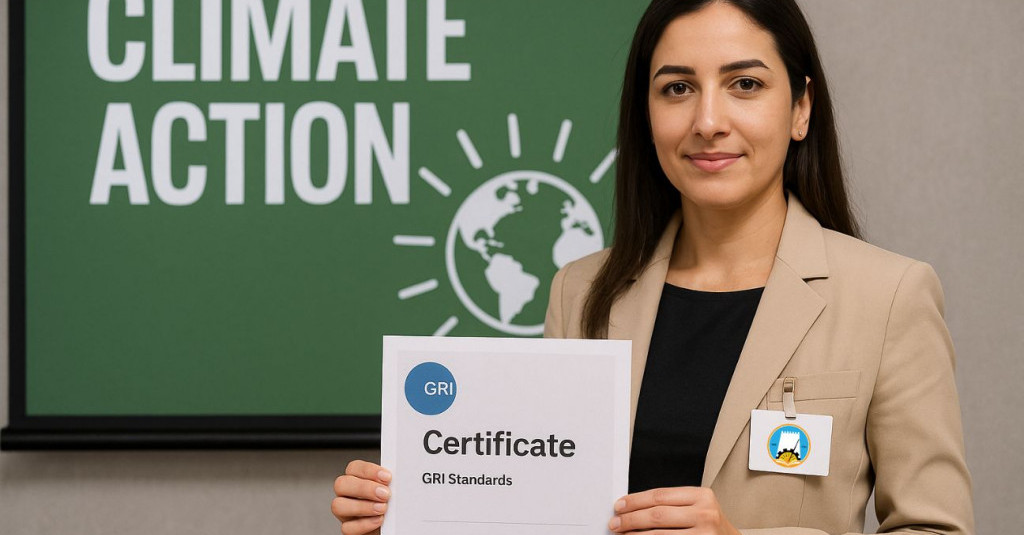News
Ajman University Strengthens Climate Accountability as Senior Sustainability Manager Completes Advanced GRI Certification

In a strategic move to advance its climate leadership and transparency, Ajman University announced that Ms. Maya Haddad, Senior Sustainability Manager, has successfully completed an advanced professional training program on the Global Reporting Initiative (GRI) Standards. This certification equips the University with world-class expertise to measure, manage, and communicate its sustainability performance, with a heightened focus on climate action and environmental accountability.
The GRI Standards are the world's most widely adopted framework for sustainability reporting, used by organizations in over 100 countries. The rigorous training provides professionals with the skills to systematically report on a organization's economic, environmental, and social impacts. For Ajman University, this directly enhances its ability to track and disclose progress toward its climate goals.
Ms. Haddad's newly certified expertise ensures that the University's sustainability reporting will now be aligned with the most current global benchmarks. This is particularly critical for climate-related disclosures, as the GRI framework includes specific standards for reporting on energy consumption, greenhouse gas (GHG) emissions, and overall environmental footprint.
"This training is a direct investment in our capacity to drive meaningful climate action," said Ms. Haddad. "The GRI Standards provide a rigorous, credible structure for us to not only report on our carbon footprint but to strategically manage it. It allows us to move from intention to measurable impact, ensuring our initiatives—from energy efficiency and waste reduction to sustainable procurement—are effectively tracked and communicated to our stakeholders with full transparency."
This development is a key step in Ajman University’s ongoing commitment to the United Nations Sustainable Development Goals (SDGs), particularly SDG 13: Climate Action. By adopting a globally recognized reporting standard, the University strengthens its position as a sustainability leader in the higher education sector, demonstrating that institutional accountability is foundational to combating climate change.
The enhanced reporting capabilities will inform future sustainability reports, providing clear, comparable data that benchmarks the University's environmental performance against international best practices, thereby solidifying its role in fostering a sustainable future.



